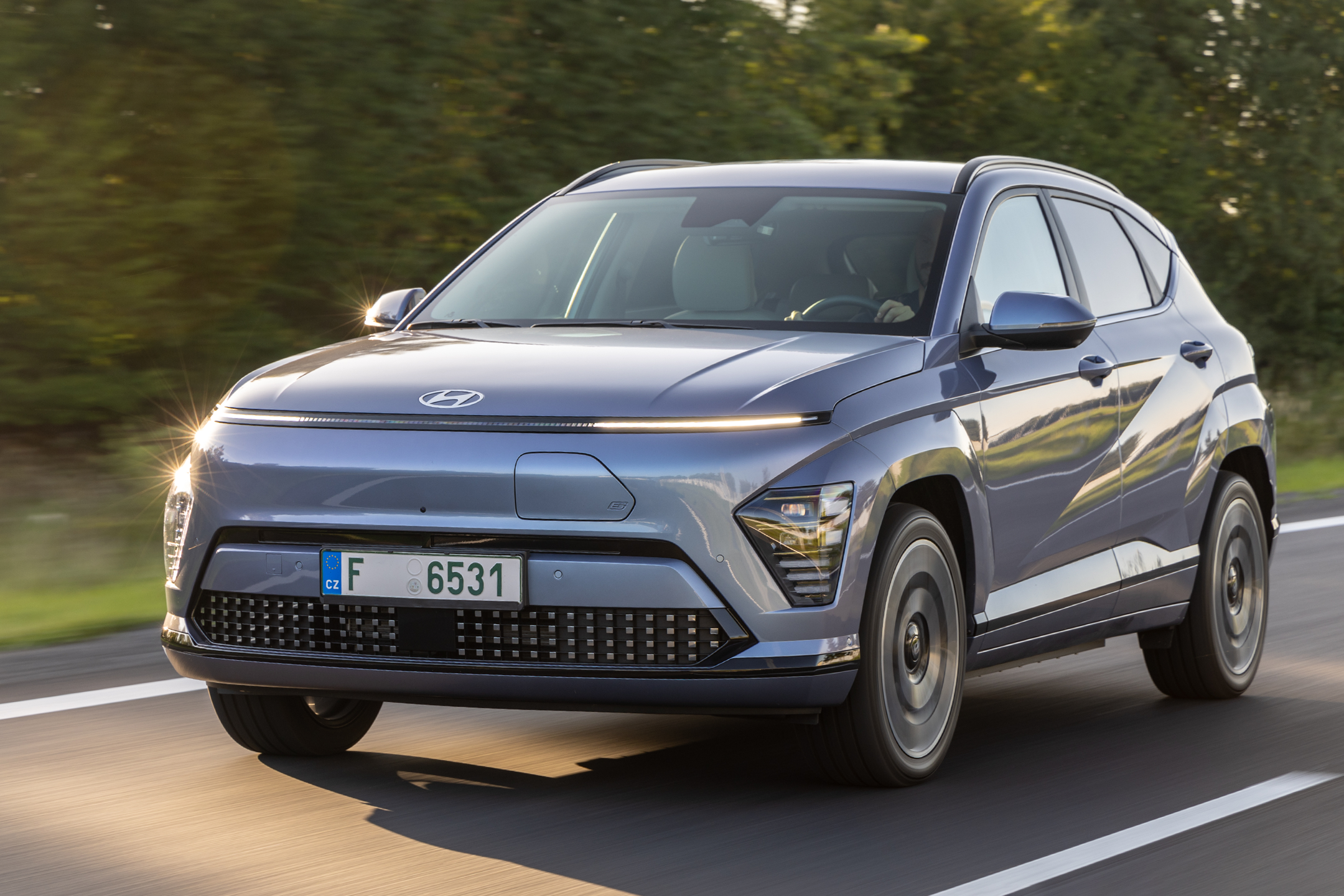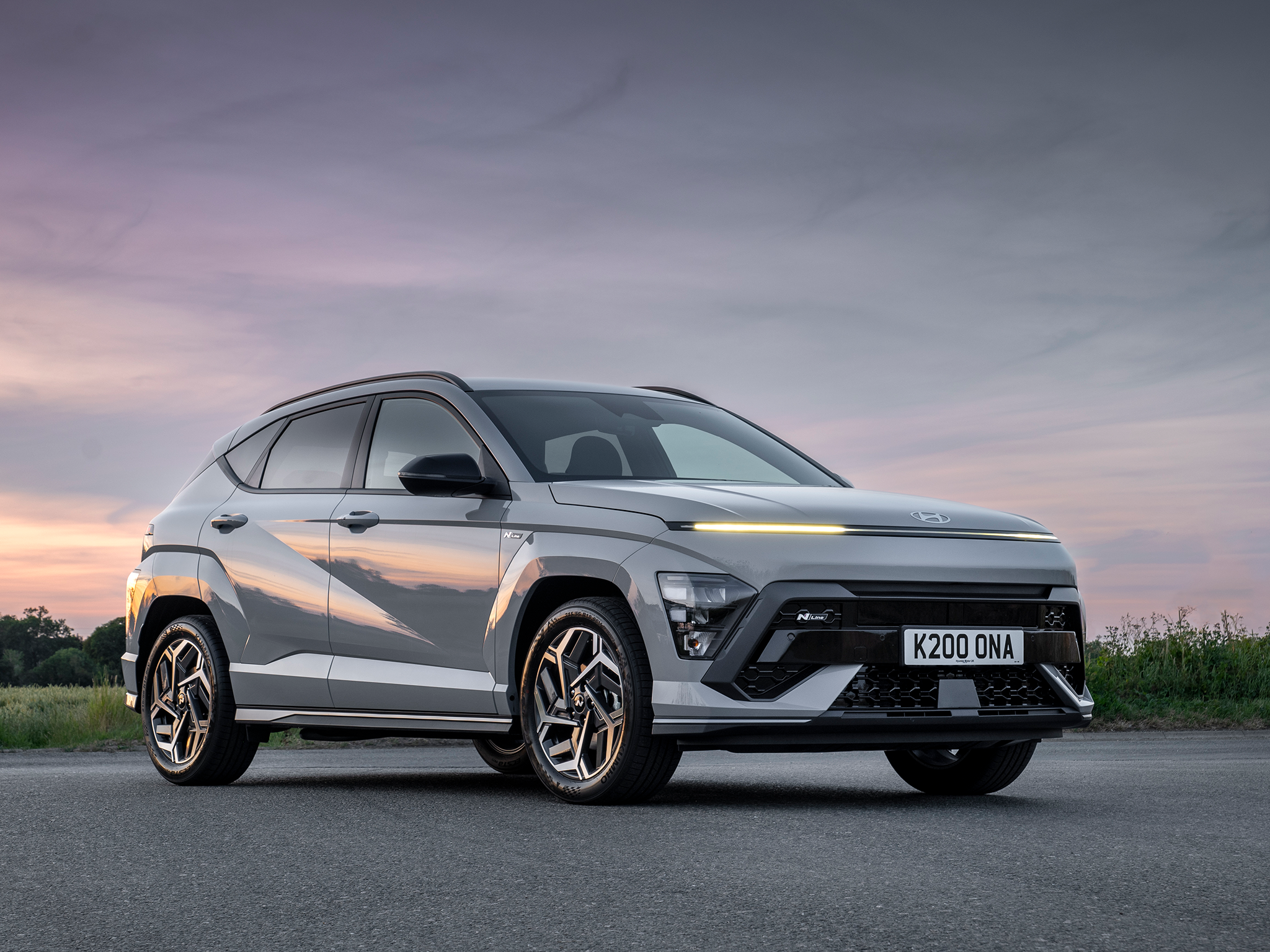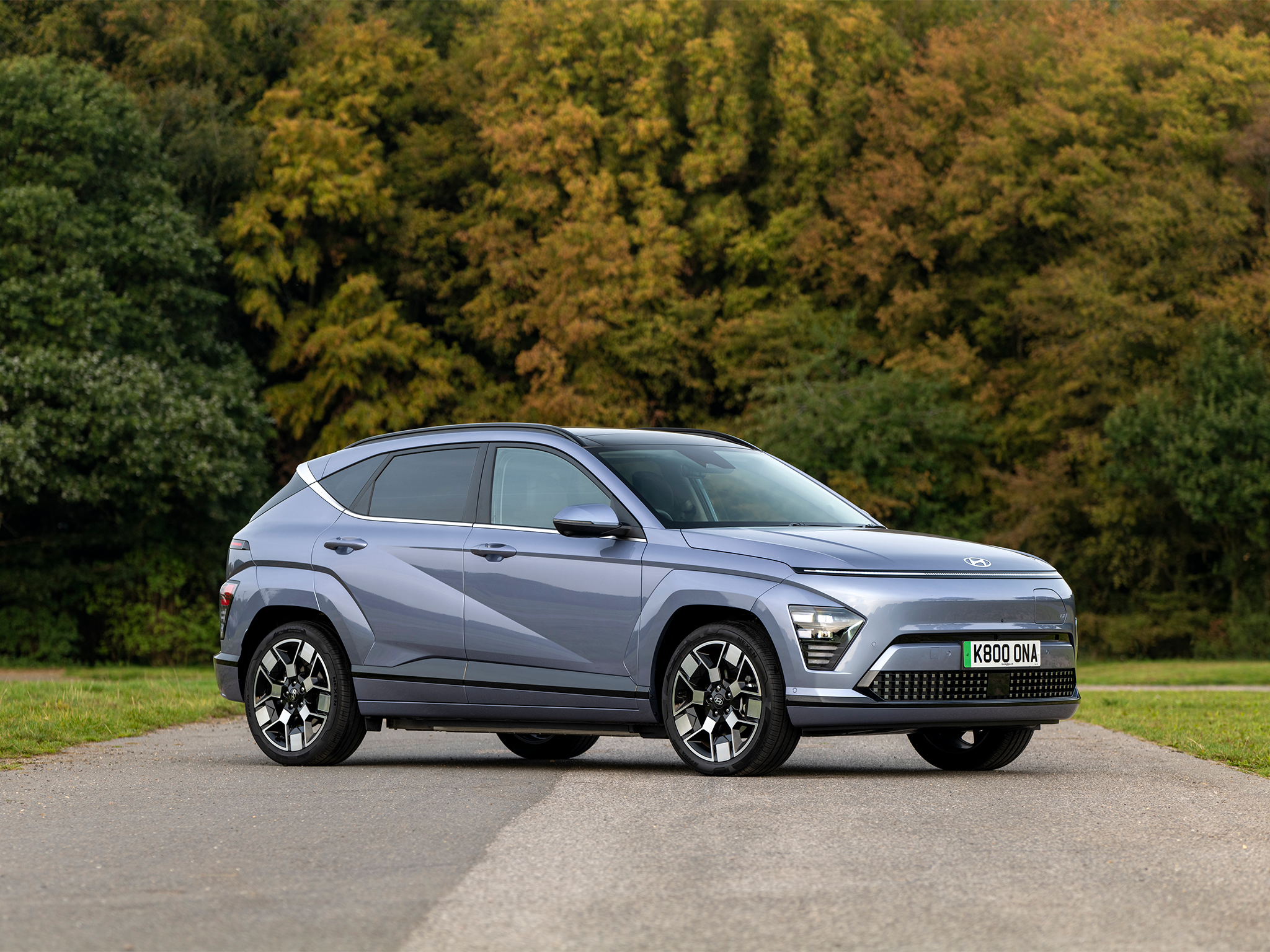Hyundai Kona review: Comfortable electric hatchback with long range
Comfortable, spacious, good value and with a decent range, the Kona is everything a small, family-sized EV should be

The Hyundai Kona quickly established itself as a front-runner in the competitive small EV market. For the second generation Kona, Hyundai pored over owner feedback, resulting in a significantly enhanced package: more space, a noticeable uplift in quality, smarter tech, and – crucially – a major boost in range. Go for the larger battery variant and the range will top 300 miles, supported by useful 101kW fast charging.
Those space-age looks remind us of something out of Battlestar Galactica, but inside the Kona has a smart, comfortable and well-made interior, blending sensible with aspirational brilliantly.
Although it’s quick, the Kona errs on the side of comfort rather than sporty – again a nod to the people who’ll buy it. And the tech upgrade over the previous model goes as far as software-over-the-air upgrades that can improve the usability of the car’s infotainment and also, potentially, the efficiency.
How we tested
To be confident enough of naming the Kona Car of the Year in 2023 I made sure it was tested on all the roads buyers would expect and in all the ways they would use a Kona – from a school run to a week away.
Hyundai Kona: From £34,995, Hyundai.com

Independent rating: 8/10
- Pros: Space, comfort, tech, range, value
- Cons: Styling is a mix of bland and wacky
Hyundai Kona specs
- Price range: £34,995 to £43,095
- Battery size: 48 & 65kWh
- Maximum claimed range: 319 miles
- Miles per kWh: 3.7 - 4.26
- Maximum charging rate: 101kW
Battery, range, charging, performance and drive
You’re not short of choice with a Kona with four trim levels and two batteries. Go for the 48kWh battery which is only available in entry-level Advance trim and you can go a maximum of 234 miles on a single charge – and fast charging goes up to 74kW.
Every other grade of Kona – including Advance again – is available with the larger 65kWh battery that will go up to 319 miles with a price starting at £38,595. With a suitable fast charger you can charge at speeds of up to 101kW then, going from ten to 100 per cent in one hour and 22 minutes.
One thing that has always impressed about Hyundai EVs is the efficiency and every Kona gets a heat pump to improve that, especially in colder weather; we’d expect to be able to cover around four miles for every kWh of charge in the Kona. You’ll have to be taking it easy then – which you probably will; this is no sports car and even the zero to sixty dash is covered in a relatively (for an EV) leisurely 7.8 seconds for the bigger-battery models.
It’s an easy car to manoeuvre, too, with a tight turning circle and excellent all-round visibility. The ride is comfortable on all but the very worst roads, too.
Interior, practicality and boot space
The biggest gripe owners of old Konas had was about boot space, so the new one ups that from a measly 374 litres to a handy 466 litres. The boot has not only grown, but it’s also been made more usable with a low loading lip and a decent square shape. The boot door is powered on some models, too.
Rear space has had a boost, although not quite to the same levels, but enough to provide plenty of space in the back for older children and adults. Headroom is good, too, whether you’re in the front or the back, while everyone will find a decent amount of storage around the cabin for everything from mobile phones to sunglasses. Anyone who must put a child into a child seat will welcome wide opening rear doors, while ISOFIX fitting points are easily accessible, too.
We’ve been impressed by the quality improvements inside the Kona, too – there are nice materials all around and high-quality switchgear, too.

Technology, stereo and infotainment
Hyundai’s familiar twin-screen layout features in the Kona with a crisp, responsive 12.3in touchscreen in the centre and a similarly sized, clear digital display in front of the driver. Hyundai also says that software-over-the-air updates will continue to improve the user experience from the screens, too.
The standard navigation will also show you where EV chargers are located, although we suspect most people will be like us and just use the smartphone connectivity for Apple CarPlay or Android Auto. There are plenty of USB-C sockets around the car and wireless charging available, too.
There are plenty of safety aids on board and cameras to help you when parking – even on lowly Advantage models, which also get LED headlights, while you can get heated and cooled seats on some models – you can even get a heated steering wheel.
Top-spec Ultimate cars get a Bose sound system, although like most Bose systems it impresses more for its bass than its detail.
Prices and running costs
Our pick would be the £38,595 Advance model Kona with the larger 65kWh battery giving a maximum range of 319 miles. Beyond that you’ll start getting into Tesla territory – a familiar problem with circa £40,000 EVs. Good though the Kona is, it’s not the best way to spend £43,000 – the cost of the top-spec Ultimate model
However, Hyundais always impress with their efficiency and the accuracy of their range predictions, and the Kona is no different, meaning charging costs should be relatively low, especially on a smart energy tariff.
Hyundai’s also benefit from a longer-than-average warranty at five years, although the battery gets cover for eight years.

Hyundai Kona rivals
FAQs
How long does it take to charge?
On a fast charger, you can charge at speeds of up to 101kW, going from ten to 100 per cent in one hour and 22 minutes
How much does it cost - is it worth it?
We’d stick with the cheaper advantage models with the small 48kWh battery Advance model starting at £34,995 with an extra £3,600 needed to get you into a 65kWh version of that car.
Does Hyundai replace batteries for free?
Hyundai’s standard warranty is a generous five years, although cover for the battery is the same as everyone else’s at eight years.
Why trust us
Our team of motoring experts have decades of experience driving, reviewing and reporting on the latest EV cars, and our verdicts are reached with every kind of driver in mind. We thoroughly test drive every car we recommend, so you can be sure our verdicts are honest, unbiased and authentic.
The verdict: Hyundai Kona
For a mainstream electric hatchback, the Kona does a good impression of being a premium car. From the sleek looks with fancy LED lighting at the front, to the quality of the interior and the space on offer. I also found the Kona – like all Hyundai EVs – to be efficient and accurate at predicting range.
Join our commenting forum
Join thought-provoking conversations, follow other Independent readers and see their replies
Comments






Bookmark popover
Removed from bookmarks